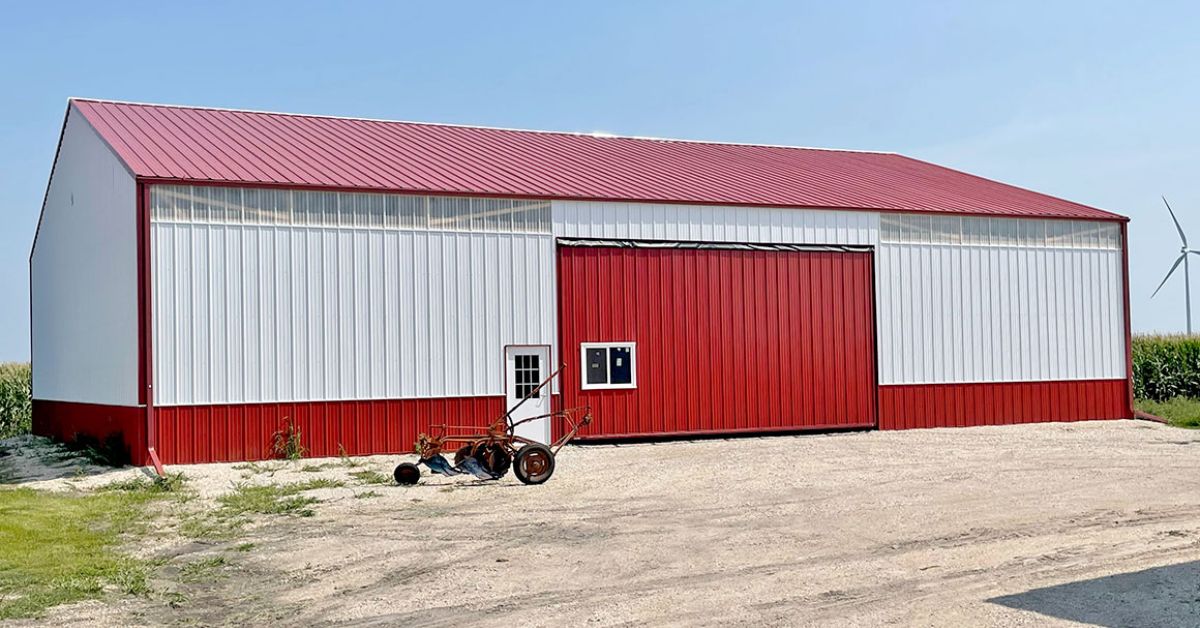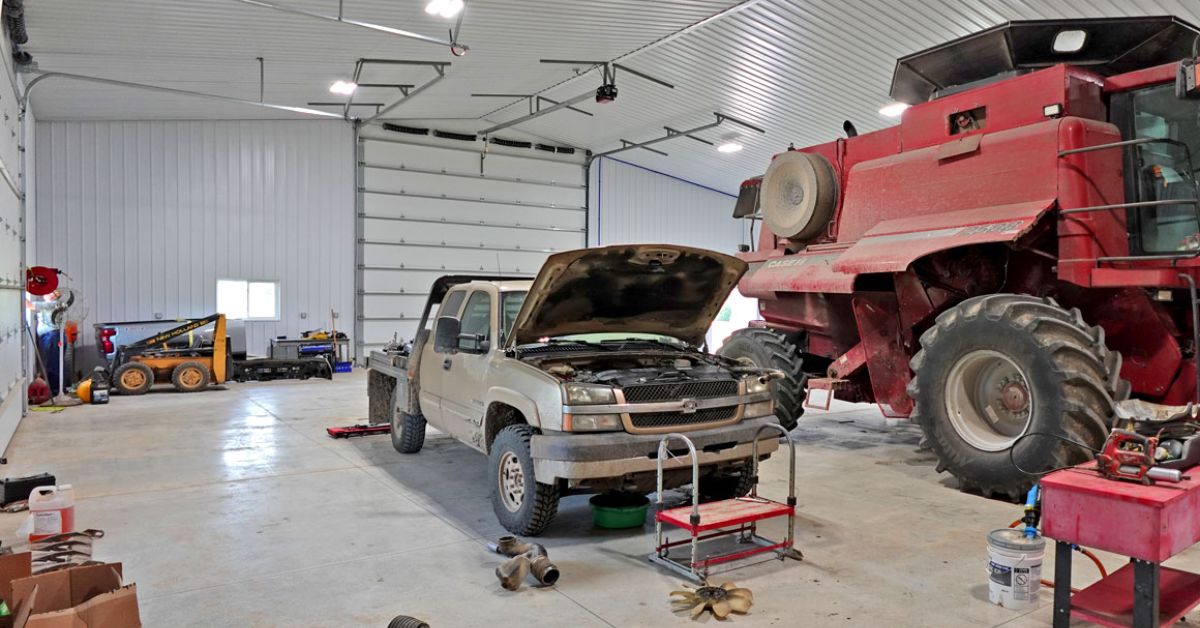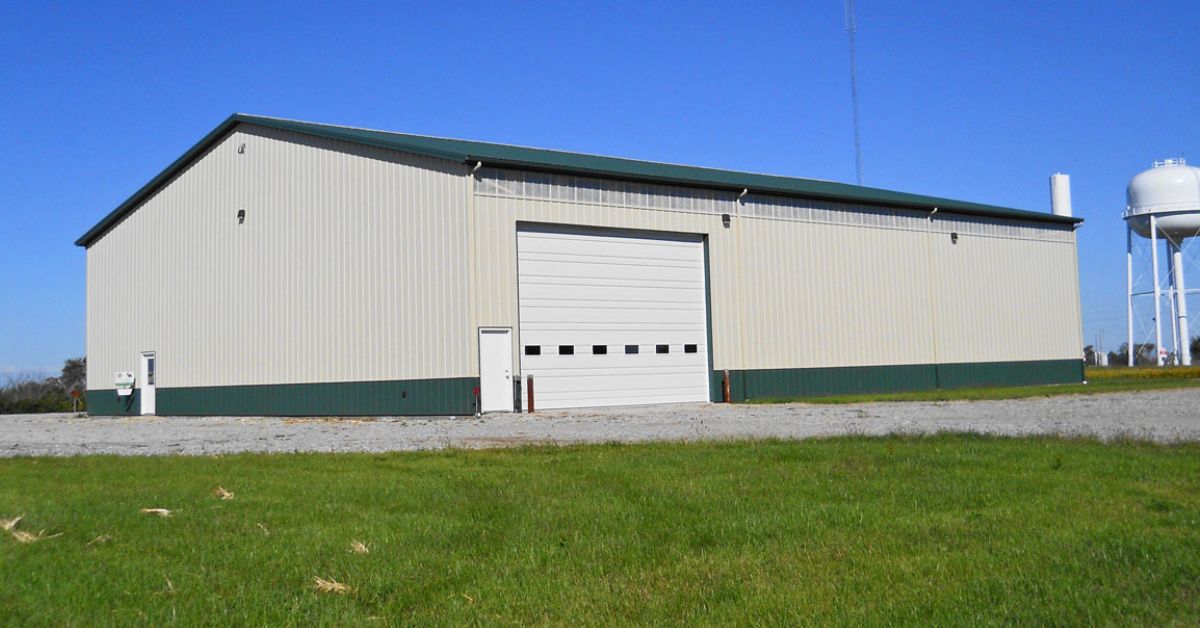What Makes a Farm Shop Building Functional for Daily Use
.jpg)
Farm shop buildings are common in various agricultural operations. From storing equipment and repairing machinery to handling administrative tasks, these buildings support whatever users need. But what makes a farm shop building functional for daily use?
To answer this question, we’ll dive into the key elements of a well-designed farm shop building and provide actionable tips to help you make the most of the space.
Why Functionality Matters in a Farm Shop Building
Farm shops support the daily workflow of farming operations, offering utility and value to people from all walks of life. However, integrating the building into everyday operations can take a bit of work.
The right design can save time and energy. On the other hand, a poorly designed space could lead to inefficiencies and frustrations that hinder productivity.
What Are Farm Shops Used For?
There are countless ways to put a farm shop to work. Some common applications include:
- A dedicated space for storing tools and performing regular maintenance or repairs on farm machinery.
- Storing seeds, fertilizers, and other agricultural supplies in an organized, weather-protected environment.
- Hands-on projects, like woodworking and welding, contribute to the efficiency of the farm.
- A centralized space to park trucks, tractors, and other essential farm vehicles.
- A quiet office area for managing farm records, researching, and planning future projects.
- A seasonal preparation space for tasks like preparing for planting or storing harvesting equipment between seasons.
- Livestock care assistance for tasks like assembling feeding equipment or conducting quick repairs for animal enclosures.
Design Features That Support the Shop’s Usability
Functional farm shop buildings should be versatile, durable, and designed with the specific needs of your farm in mind. The following features will contribute to a truly effective space.
Ample Storage Space
Storage space keeps tools, equipment, and supplies organized, accessible, and protected. Shelving units, pegboards, and cabinets can help maximize vertical and horizontal space, keeping the shop clutter-free and efficient.
Consider incorporating dedicated storage areas for specialized equipment, hazardous materials, and seasonal items. Labels and systematic organization further enhance productivity and reduce downtime caused by searching for needed items.
Adequate Lighting
Sufficient lighting is essential in a farm shop to ensure safety, efficiency, and accuracy in daily tasks. A well-lit workspace reduces the risk of accidents and allows for precision in repairs, maintenance, and other detailed work.
Maximize natural light whenever possible with windows and skylights that illuminate the space. Additionally, installing overhead LED or fluorescent lights provides consistent and energy-efficient lighting for all areas.

Ventilation and Climate Control
Ventilation helps remove fumes, dust, and excess moisture, improving air quality and reducing the risk of respiratory issues. Installing exhaust fans, ridge vents, or louvers can enhance air circulation and keep the workspace fresh.
Climate control systems, such as heating and cooling units, ensure the shop remains functional regardless of the weather. Insulating the walls and ceilings can also contribute to maintaining stable temperatures and energy efficiency.
Durable Flooring
Choosing the right flooring for a farm shop is essential for ensuring durability, safety, and ease of maintenance. Concrete is a popular choice due to its strength and resilience, capable of withstanding heavy equipment and constant wear.
Adding a sealed or epoxy coating further protects the surface from stains, moisture, and chemical spills while making it easier to clean. Textured finishes or nonslip coatings can enhance safety by reducing the risk of slipping, especially in wet conditions.
Spacious Layout
Adequate space allows for a smooth workflow, easy equipment maneuvering, and reduces the chances of accidents. Designating specific zones for storage, repairs, and equipment maintenance ensures that everything has its place.
Consider maintaining wide walkways and open areas to accommodate larger machinery and allow for future expansion. By prioritizing a spacious and flexible layout, farm shops can better meet the evolving needs of agricultural operations.
Power and Utility Accessibility
Establishing a sufficient number of electrical outlets, strategically placed throughout the shop, makes it easier and more convenient to use tools and equipment. Additionally, access to water lines and proper lighting enhances productivity, particularly in areas designated for repairs or detailed work.
Overhead power drops and heavy-duty electrical wiring may be necessary to support larger machinery or high-powered tools. Thoughtful planning of utilities ensures that operations run smoothly and reduces downtime caused by poor infrastructure.
Safety Features
Prioritizing safety is essential in any workspace to protect workers and ensure efficient operations. Installing fire extinguishers and smoke detectors at accessible locations is a fundamental safety measure.
Considerable ventilation, whether through exhaust fans or air purification systems, helps mitigate harmful fumes and dust. Nonslip flooring and clearly marked walkways reduce the risk of accidents, while proper storage for hazardous materials contains dangerous substances.

Tips for Designing a Great Farm Shop
By designing your farm shop according to your needs, you can ensure your vision comes to life. Here’s what to know before starting:
- Conduct thorough research to identify the target audience’s requirements and expectations, ensuring the space aligns with real user problems.
- Avoid overcomplicating features. Streamlined and intuitive designs improve user experience and reduce confusion.
- Ensure the functionality accommodates users of varying abilities by following accessibility guidelines and best practices.
- Regularly test the functionality with real users and use feedback to refine and improve the design.
- Design with future growth and updates in mind to ensure the functionality remains effective as needs evolve.
- Verify that the feature works seamlessly across different devices, browsers, and operating systems.
- Stick to established design patterns and standards to create a cohesive and predictable user experience.
With these tips, you’ll have a space that meets your every need without ever getting in the way of operations.
Build a Farm Shop That Supports Your Workflow
A well-designed farm shop building is the foundation of operational success. By considering what makes a farm shop building functional for daily use, you can create a space that supports your daily workflow and enhances productivity.
Are you having trouble getting your design off the ground? Lester Building Systems is here with the solution you need. Our farm shop buildings are designed from start to finish to ensure functionality, efficiency, and practical, professional solutions for your project.
